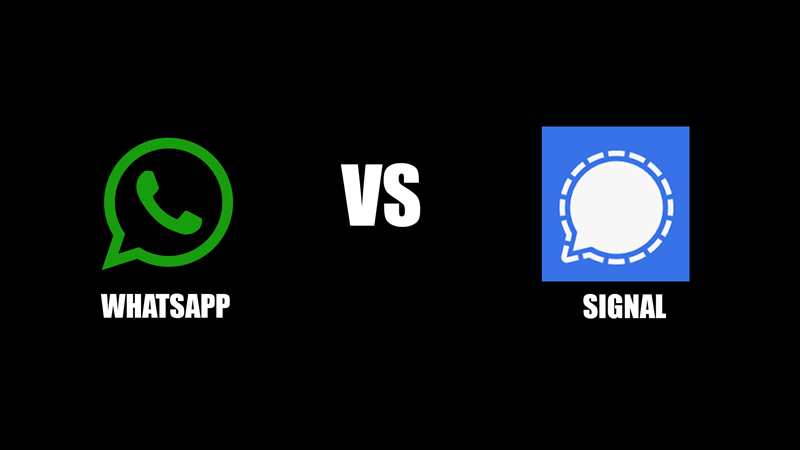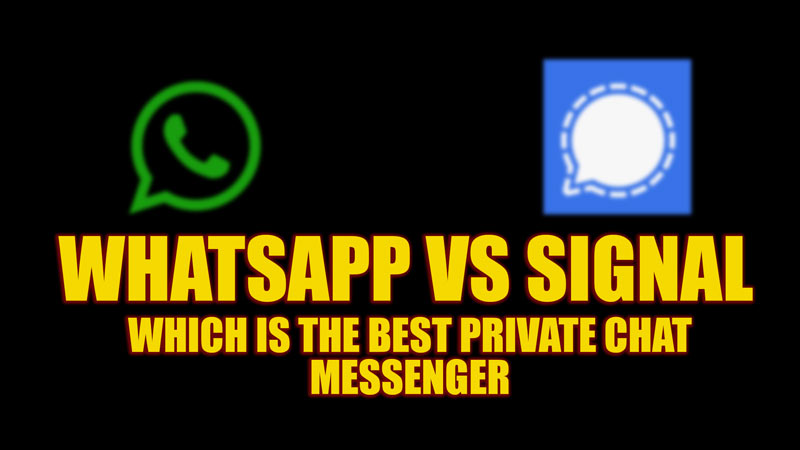In this digitally connecting world, messaging apps have become an essential tool for communication. Hence, messaging apps like WhatsApp and Signal plays an important role in virtual communication in our day-to-day life. But with the emerging concern over privacy and security, it becomes essential to use a secured app that provides user-friendly features. Hence, with this WhatsApp vs Signal comparison guide, we aim to give you clarity on which messaging app suits you the best.
WhatsApp vs Signal: Which is the best messaging app (2023)

In the comparison between WhatsApp vs Signal, the following criteria were taken into consideration:
- Privacy and Security
- Data collection
- Voice and Video call feature
- Unique Features
1. Privacy and Security
When privacy and security features are compared, the first thing that comes to a user’s mind is message encryption. Fortunately, both WhatsApp and Signal use the same encryption protocol developed by Open Whisper Systems. This open-source and peer-reviewed software is one of the most trustworthy end-to-end encryption protocols available today. However, message encryption alone is not enough to ensure privacy and security. Other factors affect how well these apps can protect your privacy as well. One such important privacy and security feature is the encrypted metadata. Signal uses the Sealed Sender technique to protect your metadata. On the other hand, WhatsApp stores and uses this information to make its product better.
2. Data Collection
One of the main differences between WhatsApp and Signal is how they handle user data. WhatsApp is owned by Facebook, which has a history of collecting and sharing user data for advertising purposes. WhatsApp itself collects some information about you, such as your phone number, contacts list, device details, location data (if enabled), payment information (if used), and usage statistics. Some of this data may be shared with Facebook or other third-party services too. Wherein Signal does not collect any information regarding your private information, messages, or contacts. It only stores your phone number as a unique identifier and nothing else.
3. Voice and Video call feature
Both WhatsApp and Signal offer voice and video calls with end-to-end encryption. Also, they both support switching between voice and video during a call. Also, the group calling feature is not supported on the desktop version of WhatsApp and Signal. But when it comes to the quality of video calling, WhatsApp has better call quality than Signal due to its larger user base and infrastructure. Additionally, WhatsApp lets you make voice calls over Wi-Fi or cellular networks without using data, but this may incur charges depending on your mobile carrier.
4. Unique Features
Both apps possess some general messaging app features, such as voice notes, group chat, emojis, stickers, disappearing messages, view-once media, reactions, and more. However, some unique features are special to each app. One such example is group chats, wherein WhatsApp only supports adding 256 people in a group chat at once, and Signal supports about 1000 participants in a group at once. Moreover, Signal supports privacy features like relayed calls, an incognito keyboard, screen security, a registration lock, and more. On the other hand, you can use Meta Avatars, dark mode, QR code scanning, status update, and more such features on WhatsApp.
Hence, if you are looking for a secure messaging app that protects your privacy, there’s no doubt Signal is the best. But when you want a secure messaging app with features that gives you a more personalized experience, WhatsApp is the app made for you.
With that, this WhatsApp vs Signal comparison guide ends. Also, if you want to read more such comparisons and differences guides, we suggest reading our Viber vs Signal or iPhone 14 Pro vs Pixel 7 Pro guides too.
